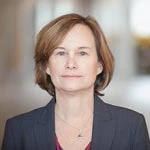Fear and hope were the dominant emotions in this turbulent period. Fear of the unknown, fear of repeating the mistakes of failed transitions, fear of continued unrest in some parts of the region. And, hope for a better future, a future built on dignity and inclusion, hope for peace and prosperity in the region. Few talked of a return to the compromises of the past.
 Many uncertainties were highlighted. Professor Vali Nasr noted that the revolutions were unlikely to be unidirectional like in Eastern Europe or Latin America. But, also stressed that with globalization democracy is the only long-run solution; without it, people’s aspirations will continue to diverge from the governments that they have. Dr. Rola Dashti raised concerns about the status of women now, fearing that the Arab Spring will not serve the interests of the many young men and women that began it. Afshin Molavi highlighted the risks of incomplete transition and ongoing security concerns to recovery and people’s livelihoods. Abdallah Al-Dardari agreed, citing the large share of the population living near the poverty line and underscored the urgent need for economic and political reforms.
Many uncertainties were highlighted. Professor Vali Nasr noted that the revolutions were unlikely to be unidirectional like in Eastern Europe or Latin America. But, also stressed that with globalization democracy is the only long-run solution; without it, people’s aspirations will continue to diverge from the governments that they have. Dr. Rola Dashti raised concerns about the status of women now, fearing that the Arab Spring will not serve the interests of the many young men and women that began it. Afshin Molavi highlighted the risks of incomplete transition and ongoing security concerns to recovery and people’s livelihoods. Abdallah Al-Dardari agreed, citing the large share of the population living near the poverty line and underscored the urgent need for economic and political reforms.
Despite these challenges, tremendous optimism for the future among many participants was palpable. Naveen el Tahri said there are signs of growth and tourism returning in Egypt, and that she sees many small and medium-sized companies creating jobs.Rahdi Meddeb has plans to expand his own business in Tunisia, as he expects improved governance will make for more and better opportunities. Finally, Abdallah al Dardari expressed hopes for a development approach based on human rights taking root in the region.
It was also recognized that a challenging period following regime change is the norm. Dr. Daniel Kaufmann drew attention to the seven years that it typically takes to get through the difficult period of transition, as institutions need to be reformed and officials trained.
A crucial way to move forward—local governance—was emphasized by Professor Roger Myerson. He stressed that decentralization improves service delivery while functioning as a key training ground for future politicians. Local governments are closer to the people, making them more efficient service providers and more accountable to recipients than central governments. Of special importance at this juncture, success in local politics gives vital experience to politicians and provides critical information about performance to voters.
During the forum, I was surrounded by the hopes and fears of the participants. Hope is of course good because it means that people believe in the future; but fear may be good too because it means some necessary risks are being taken. Later, I discovered that an Arab poet wrote that “Hope and fear are like the two wings of a dove, they need to be in balance in order to fly.” An apt proverb to keep in mind as change takes root.


Join the Conversation